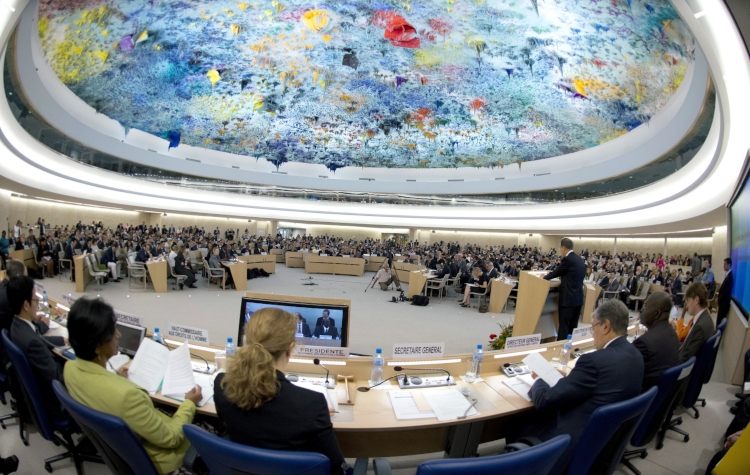39th Regular Session of the UN Human Rights Council
High-level panel discussion to commemorate the seventieth anniversary of the Convention on the Prevention and Punishment of the Crime of Genocide
Oral Statement Delivered by Khin Ohmar on behalf of
Asian Forum for Human Rights and Development (FORUM-ASIA)
Thursday, 13 September 2018
FORUM-ASIA welcomes this timely discussion on the 70th Anniversary of the Convention of the Prevention and Punishment of the Crime of Genocide. In Asia alarming cases of Mass Atrocity Crimes persist in several countries including allegations that point to cases identified or suspected as genocide.
Myanmar is the latest example in the region. After examining events in the country since 2011, the independent international Fact-Finding Mission on Myanmar established by this Council has found a need to investigate and prosecute the crime of genocide. It has further called for the UN Security Council to refer the matter to the International Criminal Court.
Regrettably, 70 years after the Convention, states party to the convention and the international community are yet to develop effective mechanisms to prevent and punish acts of genocide. In this regard we ask three questions to the panellists:
- Based on its findings, the Fact Finding Mission on Myanmar has called for a review of the UN’s involvement in Myanmar when international crimes unfolded. In 2013 the UN created the Human Rights Upfront Action Plan which was in operation when violations unfolded in Myanmar. How can the action plan and the human rights pillar of the UN be strengthened to prevent genocide?
- Investigation and prosecution of genocide is often regrettably hindered by political decisions making it a long and cumbersome process. The passage of time has a significant impact on the preservation of evidence. The establishment of the International Impartial and Independent Mechanism IIIM on Syria and current discussions around a similar mechanism for Myanmar are new innovations to preserve and document evidence. How can these contribute to the effective prosecution of genocide?
- What steps can the international community take to effectively address the non-recurrence of genocide in countries that refuse to cooperate?
***
For a PDF version of this statement, click here.



